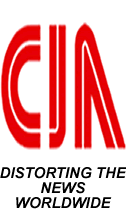Untitled Document

The CIA has adopted internal rules allowing it to define what constitutes
a news organization and what doesn't, a Washington-based research group contended
in a federal lawsuit filed Wednesday.
The lawsuit by the National Security Archive, which operates the largest non-governmental
library of declassified documents, says the spy agency has begun charging illegal
search and duplication fees under the federal Freedom of Information Act.
The act requires government agencies to waive fees if the request is considered
to be a matter of public interest or contributes to public understanding of
governmental operations. Waivers are generally granted to news organizations.
Depending upon the scope of the request, search and duplication fees can run
hundreds of thousands of dollars.
The archive has won rulings in federal district and appeals courts that require
government agencies to treat it as a member of the news media. The archive shared
an Emmy award last year for its work on a documentary dealing with President
Nixon's 1972 trip to China, and it has won other major journalism awards.
It's also frequently clashed with the CIA. Earlier this year, the archive gave
the CIA its "Rosemary Award" for the federal agency with the worst
FOIA record. In its citation, the archive noted that the CIA had already begun
to deny fee waiver requests based on its perception of their newsworthiness,
and the archive predicted the action would "lead to wasteful re-litigation
of a settled issue."
In its lawsuit, the archive said the CIA rejected immediate waivers for 42
FOIA requests over the last year, demanding in many cases to know how its requests
were related to current events. The delayed FOIA requests dealt with issues
such as U.S. assistance to Afghan rebels after the 1976 invasion by the Soviet
Union and CIA daily briefings for the Truman White House.
The CIA told the archive that it wouldn't waive search and duplication fees because
many of the requests wouldn't interest the general public. Thomas Blanton, the
archive's executive director, said the response was illegal and potentially dangerous
for the entire FOIA process.
"This means they get to decide what's news," Blanton said.
Lucy Dalglish, executive director of the Arlington, Va.-based Reporter's Committee
for Freedom of the Press, said she hasn't heard of the CIA making similar responses
to other news organizations, but she called the response "horrifying"
and said it sets a bad precedent.
"It's not up to the CIA to decide what's newsworthy," Dalglish said.
A CIA spokesman said the agency would have no comment.
______________________
Read from Looking Glass News
The CIA and the Media
http://www.lookingglassnews.org/viewcommentary.php?storyid=15
How the CIA Paid for Judy Miller's Stories: All the News That's Fit
to Buy
http://www.lookingglassnews.org/viewstory.php?storyid=3965
All "Media" News Articles
http://www.lookingglassnews.org/index.php?topic=7
All "CIA" Commentaries
http://www.lookingglassnews.org/commentaryindex.php?topic=6

